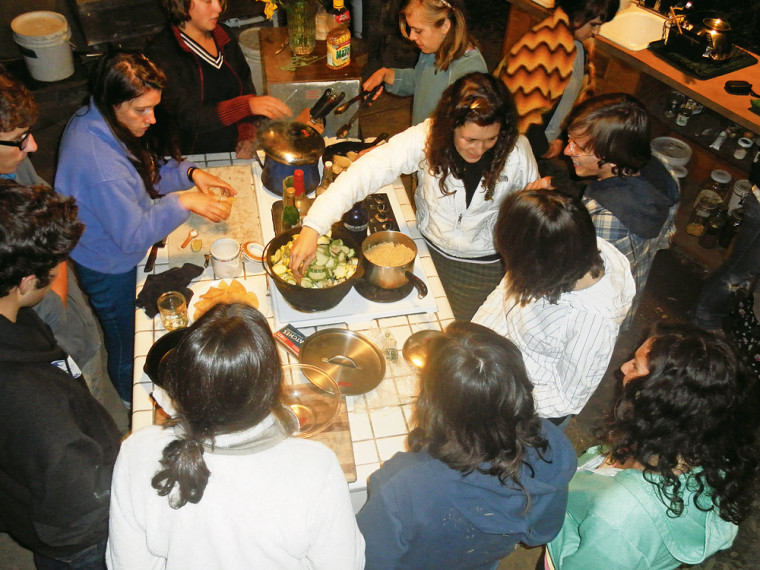Environmental Action Floor in Full Bloom
Open gallery

Plastic buckets of excess cafeteria food line the foyer awaiting composting; oyster mushrooms grow in the basement for fertilizer; and a vegetable garden, formerly a volleyball pit, blooms nearby. All of these efforts reflect the work of the PEAS floor, located in the Juniper Residence Hall in the Forest Complex. PEAS stands for Pioneers in Environmental Action and Service—it’s one of several themed housing options offered by the undergraduate college.
The PEAS community is currently led by Julia Huggins CAS ’13, the resident assistant for the floor’s 27 students. Although there have been previous iterations of “green” floors on campus, the current configuration has been one of the most active. Huggins, who took the reins from the first PEAS floor RA, Laura Bogar CAS ’12, attributes the floor’s success to community building. “On any given night, there will be a dozen people hanging out in the common room, making bread, eating, and talking about ongoing or future projects,” she says.
PEAS residents have channeled their energy and commitment into several projects, including composting food waste for campus gardens, running a stringent recycling program (which they hope to spread to other residence halls), and going trash free for two weeks in April. They are also exploring the possibility of making green soaps and detergents for sale through the student co-op.
One of the PEAS community’s most ambitious projects is to build a new garden—almost on the scale of a small farm—on college-owned land across from the Odell Alumni Gatehouse. “The primary goal of the garden is to bring seriously needed academic thought to the alternative foods and agriculture movement,” says Huggins. “The garden is about more than just growing fresh produce. It’s about integrating ideas from chemistry, biology, ecology, social psychology, and economics so that there’s no divide between academics and activism.”
Through these new initiatives, PEAS residents are helping the campus community rethink issues related to sustainability. “And in the process,” says Huggins, “we are strengthening our commitment to environmental action and each other.”
—by Tony Pelton CAS ’11
More L&C Magazine Stories
Lewis & Clark Magazine is located in McAfee on the Undergraduate Campus.
MSC: 19
email magazine@lclark.edu
voice 503-768-7970
fax 503-768-7969
The L&C Magazine staff welcomes letters and emails from readers about topics covered in the magazine. Correspondence must include your name and location and may be edited.
Lewis & Clark Magazine
Lewis & Clark
615 S. Palatine Hill Road MSC 19
Portland OR 97219

